Shows
 Civics In A YearEnlightenment DNA: The Philosophical Origins of America's DeclarationThe influences on the Declaration of Independence extend far beyond John Locke to encompass a complex tapestry of philosophical traditions, religious thought, and legal principles. Thomas Jefferson and John Adams crafted a document that uniquely blends Enlightenment rationality with Protestant theology, Scottish moral philosophy, and English common law.• Both Jefferson and Adams received extensive liberal arts educations that exposed them to diverse philosophical traditions• The Declaration represents distinctly American "both/and" thinking rather than "either/or" philosophical approaches• References to "laws of nature and nature's God" reflect natural law traditions from classical through medieval Christian philos...2025-07-2117 min
Civics In A YearEnlightenment DNA: The Philosophical Origins of America's DeclarationThe influences on the Declaration of Independence extend far beyond John Locke to encompass a complex tapestry of philosophical traditions, religious thought, and legal principles. Thomas Jefferson and John Adams crafted a document that uniquely blends Enlightenment rationality with Protestant theology, Scottish moral philosophy, and English common law.• Both Jefferson and Adams received extensive liberal arts educations that exposed them to diverse philosophical traditions• The Declaration represents distinctly American "both/and" thinking rather than "either/or" philosophical approaches• References to "laws of nature and nature's God" reflect natural law traditions from classical through medieval Christian philos...2025-07-2117 min Civics In A YearThe Declaration's Blueprint for Revolution: Understanding Your Rights Against TyrannyDr. Carrese continues to examine the Declaration of Independence's guidance on what citizens can do when facing government abuse of power. We explore how the document establishes the right and duty to overthrow tyrannical regimes under specific circumstances.• Analysis of the Declaration's second paragraph structure and its four distinct subsections• Discussion of Harvard scholar Danielle Allen's research on a contested period after "the pursuit of happiness"• Explanation of how governments are instituted to secure unalienable rights with powers derived from consent• Clarification of the right to "alter or abolish" destructive governments and establish new ones2025-07-1713 min
Civics In A YearThe Declaration's Blueprint for Revolution: Understanding Your Rights Against TyrannyDr. Carrese continues to examine the Declaration of Independence's guidance on what citizens can do when facing government abuse of power. We explore how the document establishes the right and duty to overthrow tyrannical regimes under specific circumstances.• Analysis of the Declaration's second paragraph structure and its four distinct subsections• Discussion of Harvard scholar Danielle Allen's research on a contested period after "the pursuit of happiness"• Explanation of how governments are instituted to secure unalienable rights with powers derived from consent• Clarification of the right to "alter or abolish" destructive governments and establish new ones2025-07-1713 min Civics In A YearUnraveling the Declaration's Second Paragraph: Government by Consent ExplainedDr. Carrese returns to continue our deep dive into the Declaration of Independence, focusing on the concept of government by consent within the document's crucial second paragraph. We explore the structure of this foundational paragraph, examining how it methodically builds the case for America's independence through careful philosophical reasoning rather than impulsive rebellion.• Structure of the Declaration's second paragraph contains four distinct sections separated by double dashes• Harvard scholar Danielle Allen discovered a misplaced period that changes our understanding of the document's flow• The concept that "governments derive their just powers from the consent of the go...2025-07-1613 min
Civics In A YearUnraveling the Declaration's Second Paragraph: Government by Consent ExplainedDr. Carrese returns to continue our deep dive into the Declaration of Independence, focusing on the concept of government by consent within the document's crucial second paragraph. We explore the structure of this foundational paragraph, examining how it methodically builds the case for America's independence through careful philosophical reasoning rather than impulsive rebellion.• Structure of the Declaration's second paragraph contains four distinct sections separated by double dashes• Harvard scholar Danielle Allen discovered a misplaced period that changes our understanding of the document's flow• The concept that "governments derive their just powers from the consent of the go...2025-07-1613 min Civics In A YearThe Declaration's Golden Promise: Life, Liberty, and Happiness ExploredWe explore the meaning and significance of unalienable rights in the Declaration of Independence, unpacking Jefferson's deliberate choice of "Life, Liberty and the pursuit of Happiness" as fundamental human rights that cannot be taken away.• "Unalienable" and "inalienable" mean the same thing - rights that cannot be separated from you as a human being• The Declaration capitalizes "Rights" to emphasize their significance• Three specific unalienable rights are named: Life, Liberty, and the pursuit of Happiness• The phrase "among these" implies there are other unalienable rights beyond these three• Jefferson chose "pursuit of Happiness" instead of...2025-07-1515 min
Civics In A YearThe Declaration's Golden Promise: Life, Liberty, and Happiness ExploredWe explore the meaning and significance of unalienable rights in the Declaration of Independence, unpacking Jefferson's deliberate choice of "Life, Liberty and the pursuit of Happiness" as fundamental human rights that cannot be taken away.• "Unalienable" and "inalienable" mean the same thing - rights that cannot be separated from you as a human being• The Declaration capitalizes "Rights" to emphasize their significance• Three specific unalienable rights are named: Life, Liberty, and the pursuit of Happiness• The phrase "among these" implies there are other unalienable rights beyond these three• Jefferson chose "pursuit of Happiness" instead of...2025-07-1515 min Civics In A YearEquality in America: Unpacking "All Men Are Created Equal"The Declaration of Independence's most famous phrase, "All men are created equal," represents a revolutionary claim in human political history that asserts the fundamental equality of all humans regarding certain unalienable rights granted by a divine creator.• The phrase appears in the first part of the Declaration's second paragraph as the first of several "self-evident truths."• The claim draws from the natural law tradition dating back to ancient Greek philosophers• "All men" likely means all human beings regardless of gender, based on textual evidence within the Declaration• Abraham Lincoln emphasized in his 1857 Dred Scott address...2025-07-1417 min
Civics In A YearEquality in America: Unpacking "All Men Are Created Equal"The Declaration of Independence's most famous phrase, "All men are created equal," represents a revolutionary claim in human political history that asserts the fundamental equality of all humans regarding certain unalienable rights granted by a divine creator.• The phrase appears in the first part of the Declaration's second paragraph as the first of several "self-evident truths."• The claim draws from the natural law tradition dating back to ancient Greek philosophers• "All men" likely means all human beings regardless of gender, based on textual evidence within the Declaration• Abraham Lincoln emphasized in his 1857 Dred Scott address...2025-07-1417 min Civics In A YearThe Declaration of Independence: The PreambleDr. Paul Carrese explains why the American colonies wanted independence from Great Britain, tracing the growing desire for freedom and self-governance from the 1760s through the formal Declaration of Independence. The episode examines how colonial frustrations with British rule evolved from protests, such as the Boston Tea Party, into armed conflict, culminating in the Continental Congress's decisive steps toward declaring independence.• Colonial discontent began in the 1760s over Britain's "heavy hand," despite colonists' experience with self-government• Physical confrontations escalated from the Boston Massacre to Lexington and Concord in 1775• George Washington was selected as commander of Americ...2025-07-1116 min
Civics In A YearThe Declaration of Independence: The PreambleDr. Paul Carrese explains why the American colonies wanted independence from Great Britain, tracing the growing desire for freedom and self-governance from the 1760s through the formal Declaration of Independence. The episode examines how colonial frustrations with British rule evolved from protests, such as the Boston Tea Party, into armed conflict, culminating in the Continental Congress's decisive steps toward declaring independence.• Colonial discontent began in the 1760s over Britain's "heavy hand," despite colonists' experience with self-government• Physical confrontations escalated from the Boston Massacre to Lexington and Concord in 1775• George Washington was selected as commander of Americ...2025-07-1116 min Annual 90-Day Study by Constituting AmericaEssay 29: Tocqueville on the Civic Virtues Needed by America’s Self-Governing CitizensJoin us for Constituting America's 14th annual "History Holds the Key to the Future" online study: The Genius of America – A Journey Into Our Republic: A Study on Alexis de Tocqueville’s Democracy In America Essay 29: Tocqueville on the Civic Virtues Needed by America’s Self-Governing Citizens by Paul Carrese. Click here to read today's essay on our website, and blog with our scholars and study participants! (the correct link for whatever the essay is) Click here to explore our 2024 90-Day Study: The Genius of America - A Journey Into Our Republic: A Study on...2024-12-0910 min
Annual 90-Day Study by Constituting AmericaEssay 29: Tocqueville on the Civic Virtues Needed by America’s Self-Governing CitizensJoin us for Constituting America's 14th annual "History Holds the Key to the Future" online study: The Genius of America – A Journey Into Our Republic: A Study on Alexis de Tocqueville’s Democracy In America Essay 29: Tocqueville on the Civic Virtues Needed by America’s Self-Governing Citizens by Paul Carrese. Click here to read today's essay on our website, and blog with our scholars and study participants! (the correct link for whatever the essay is) Click here to explore our 2024 90-Day Study: The Genius of America - A Journey Into Our Republic: A Study on...2024-12-0910 min This ConstitutionSeason 1, Episode 3 | George Washington Builds the PresidencyGeorge Washington Builds the Presidency. Are you ready to uncover how one man's choices shaped the very essence of the American presidency? How did George Washington, a military leader turned statesman, navigate the turbulent waters of power and liberty? What challenges did he face as he established the precedents that govern our leaders today?In this episode of This Constitution, host Matthew Brogdon sits down with Paul Carrese to delve into George Washington's presidency, exploring his pivotal role in establishing the executive branch within the newly created Constitution. Carrese, a civic thought and l...2024-10-2141 min
This ConstitutionSeason 1, Episode 3 | George Washington Builds the PresidencyGeorge Washington Builds the Presidency. Are you ready to uncover how one man's choices shaped the very essence of the American presidency? How did George Washington, a military leader turned statesman, navigate the turbulent waters of power and liberty? What challenges did he face as he established the precedents that govern our leaders today?In this episode of This Constitution, host Matthew Brogdon sits down with Paul Carrese to delve into George Washington's presidency, exploring his pivotal role in establishing the executive branch within the newly created Constitution. Carrese, a civic thought and l...2024-10-2141 min The New ThinkeryPaul Carrese on George WashingtonHappy Fourth of July from the New Thinkery! This week, Alex and Greg are joined by Paul Carrese, professor at Arizona State University and senior fellow at the Jack Miller Center, to discuss George Washington in observance of Independence Day. The group discuss George Washington's ascendancy to power, his attempts to stop factionalism, and his impact as a global figure. 2024-07-031h 13
The New ThinkeryPaul Carrese on George WashingtonHappy Fourth of July from the New Thinkery! This week, Alex and Greg are joined by Paul Carrese, professor at Arizona State University and senior fellow at the Jack Miller Center, to discuss George Washington in observance of Independence Day. The group discuss George Washington's ascendancy to power, his attempts to stop factionalism, and his impact as a global figure. 2024-07-031h 13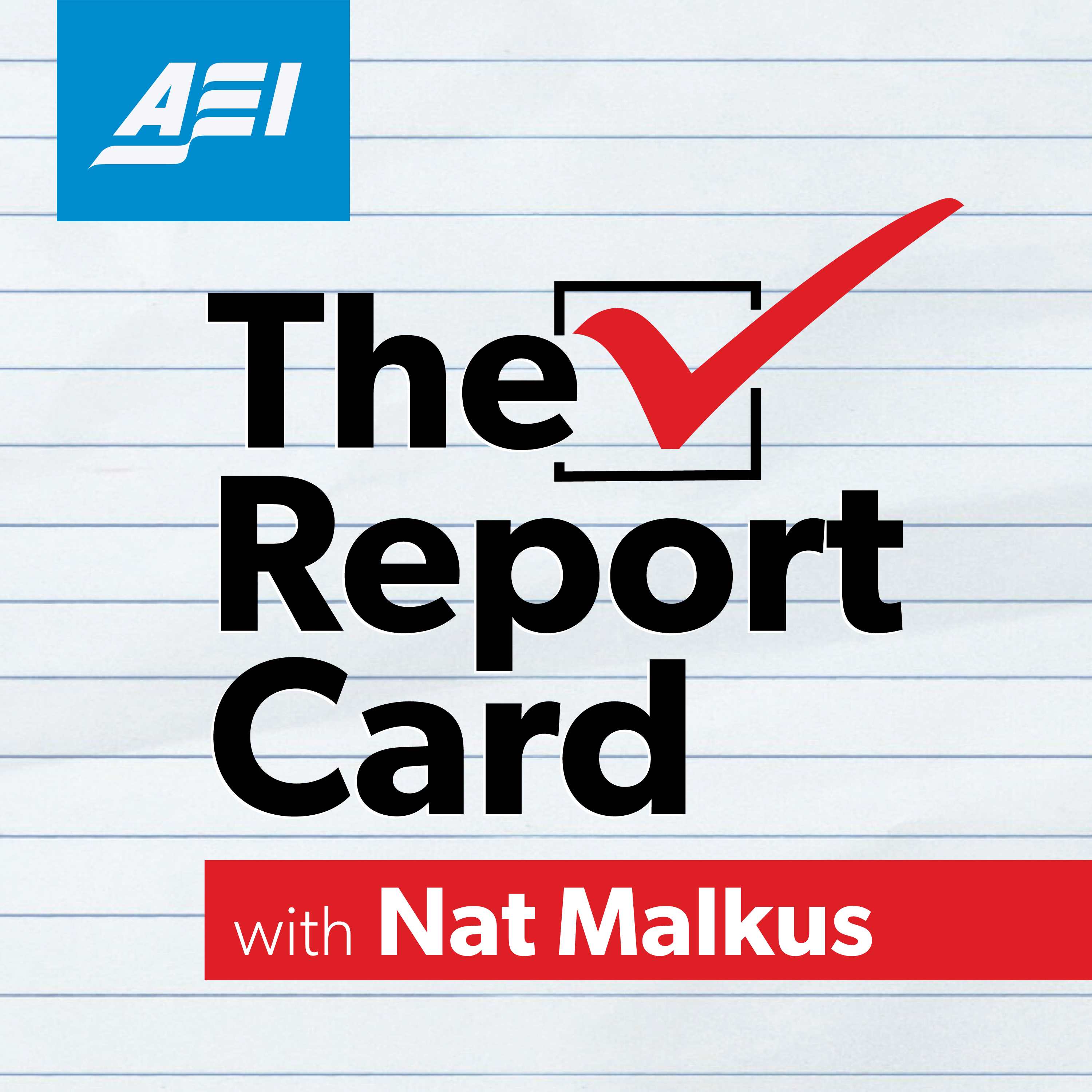 The Report Card with Nat MalkusPaul Carrese on Civic Education on CampusOver the past couple weeks, as campus protests and crackdowns on campus protests have captured the nation’s attention, it has become increasingly clear that something is wrong with the civic culture at universities. But how do we change course? How do we create a healthier civic culture on campus? And how can we train the next generation of Americans both to respect freedom of speech and be respectful in disagreement?On this episode of The Report Card, Nat Malkus discusses these questions, and more, with Paul Carrese. Nat and Paul discuss the proper content an...2024-05-0157 min
The Report Card with Nat MalkusPaul Carrese on Civic Education on CampusOver the past couple weeks, as campus protests and crackdowns on campus protests have captured the nation’s attention, it has become increasingly clear that something is wrong with the civic culture at universities. But how do we change course? How do we create a healthier civic culture on campus? And how can we train the next generation of Americans both to respect freedom of speech and be respectful in disagreement?On this episode of The Report Card, Nat Malkus discusses these questions, and more, with Paul Carrese. Nat and Paul discuss the proper content an...2024-05-0157 min The Aaron Renn ShowPAUL CARRESE: How Civics Can Remedy Higher Education’s DeclinePaul Carrese is the founding director of the School for Civic and Economic Though Leadership (SCETL) at Arizona State University. SCETL was established by an act of the state legislature to reinvigorate the idea of civics education as a core function of the public university. It is also a model for many other similar centers that have been established at other public universities around the country. Dr. Carrese joins me to discuss SCETL, and why it and centers like it are critical to the future of the university and society.Visit SCETL's web site: https://scetl.asu...2024-04-2939 min
The Aaron Renn ShowPAUL CARRESE: How Civics Can Remedy Higher Education’s DeclinePaul Carrese is the founding director of the School for Civic and Economic Though Leadership (SCETL) at Arizona State University. SCETL was established by an act of the state legislature to reinvigorate the idea of civics education as a core function of the public university. It is also a model for many other similar centers that have been established at other public universities around the country. Dr. Carrese joins me to discuss SCETL, and why it and centers like it are critical to the future of the university and society.Visit SCETL's web site: https://scetl.asu...2024-04-2939 min 360 Podcast for WomenDiscover your true life purpose and build your businessConversations with Pearl: Discover your true life purpose and build your business with Paul William Davis.2023-10-3100 min
360 Podcast for WomenDiscover your true life purpose and build your businessConversations with Pearl: Discover your true life purpose and build your business with Paul William Davis.2023-10-3100 min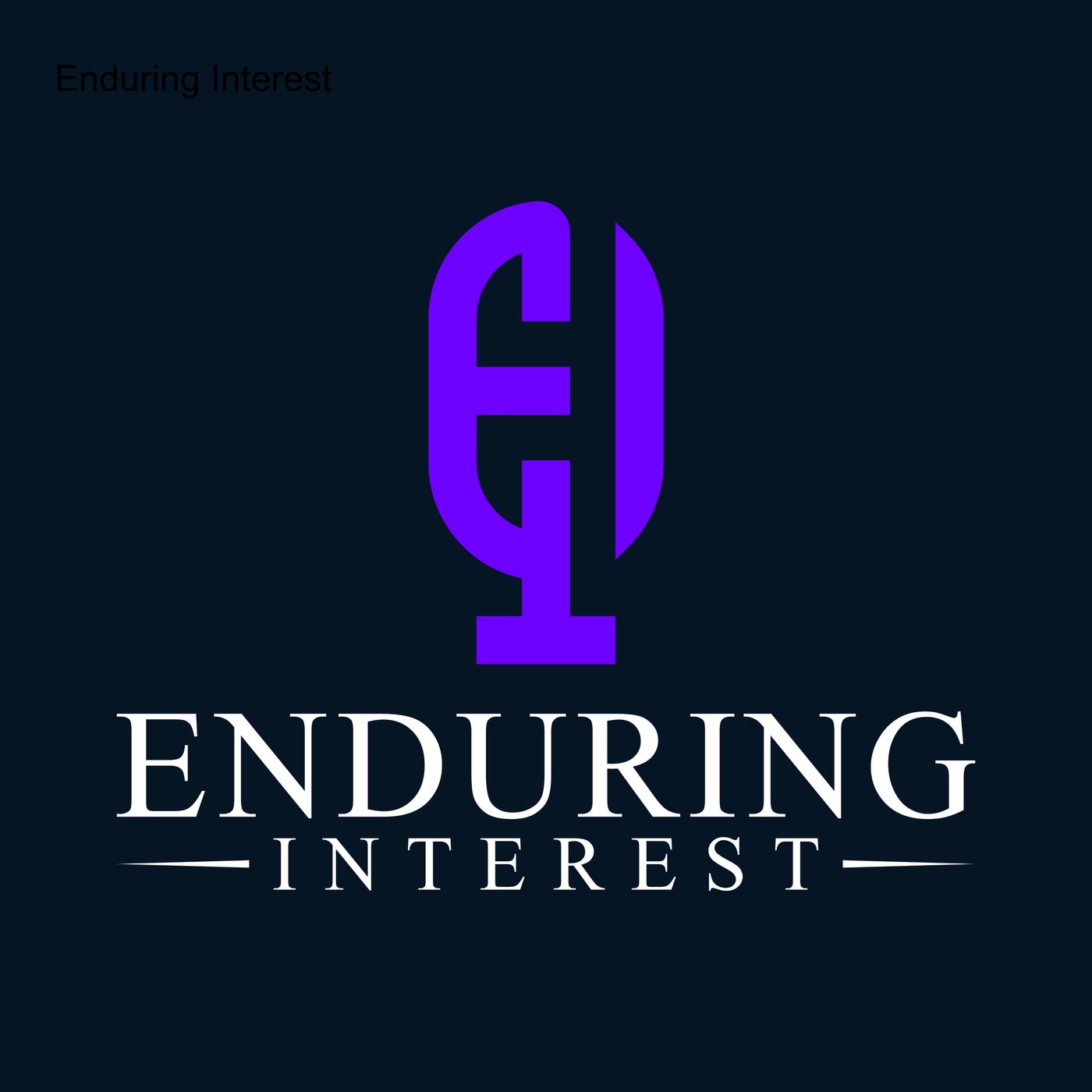 Enduring InterestSPEECH AND CENSORSHIP #2: James Stoner on Willmoore Kendall’s ”The ’Open Society’ And Its Fallacies”John Stuart Mill’s On Liberty has been a consistent and prominent reference point in the ongoing debates about free speech. In this episode we discuss an elegant and powerful critique of Mill by the twentieth century political theorist Willmoore Kendall. His essay “The ‘Open Society’ and Its Fallacies” was published in the American Political Science Review in December of 1960. Our conversation covers various aspects of Kendall’s critique. Kendall claims that Mill’s argument for freedom rests on a false conception of the nature of society and human nature itself. We explore Kendall’s understanding of Mill’s thoroughgoing radicalism. “Mill...2023-10-111h 04
Enduring InterestSPEECH AND CENSORSHIP #2: James Stoner on Willmoore Kendall’s ”The ’Open Society’ And Its Fallacies”John Stuart Mill’s On Liberty has been a consistent and prominent reference point in the ongoing debates about free speech. In this episode we discuss an elegant and powerful critique of Mill by the twentieth century political theorist Willmoore Kendall. His essay “The ‘Open Society’ and Its Fallacies” was published in the American Political Science Review in December of 1960. Our conversation covers various aspects of Kendall’s critique. Kendall claims that Mill’s argument for freedom rests on a false conception of the nature of society and human nature itself. We explore Kendall’s understanding of Mill’s thoroughgoing radicalism. “Mill...2023-10-111h 04 Constitutional Chats Presented By Constituting AmericaEp. 175 - America's Principle of Constitutional RestraintThe Declaration of Independence so eloquently laid out “charges” against the Crown - detailing why independence was necessary. The test of the Constitution is whether or not it serves the goals and aims of the Declaration of Independence. In the Constitution, the Founders had to strike the proper balance of liberty and order as our new nation was leaving an oppressive government behind while at the same time providing stability for its citizens. In order to accomplish this lofty objective, our Founders needed to empower government but at the same time restrain it. Nearly 250 years into the American experiment, we are still w...2023-08-0358 min
Constitutional Chats Presented By Constituting AmericaEp. 175 - America's Principle of Constitutional RestraintThe Declaration of Independence so eloquently laid out “charges” against the Crown - detailing why independence was necessary. The test of the Constitution is whether or not it serves the goals and aims of the Declaration of Independence. In the Constitution, the Founders had to strike the proper balance of liberty and order as our new nation was leaving an oppressive government behind while at the same time providing stability for its citizens. In order to accomplish this lofty objective, our Founders needed to empower government but at the same time restrain it. Nearly 250 years into the American experiment, we are still w...2023-08-0358 min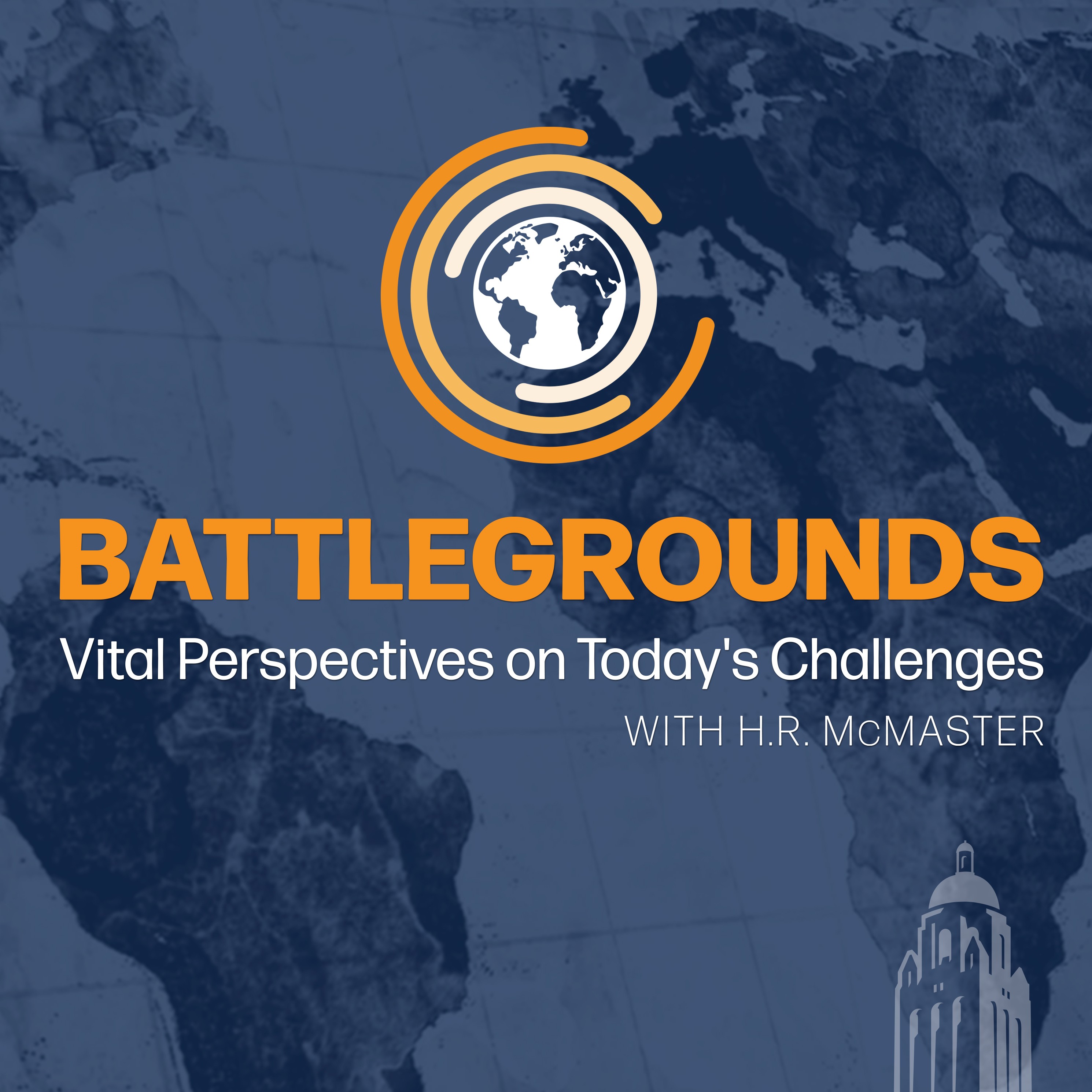 Battlegrounds With H.R. McMaster: International PerspectivesBattlegrounds w/ H.R. McMaster: Civics Education: Thinking Strategically About The Sources Of Our National SecurityIn this episode of Battlegrounds, H.R. McMaster and Paul Carrese discuss the need for civics and history education and opportunities to foster an understanding of our nation’s history that acknowledges contradictions and imperfections while extolling the virtues and great promise of our republic.
H.R. McMaster in conversation with Paul Carrese, September 7, 2022 at 9:00am PT.
2022-09-0750 min
Battlegrounds With H.R. McMaster: International PerspectivesBattlegrounds w/ H.R. McMaster: Civics Education: Thinking Strategically About The Sources Of Our National SecurityIn this episode of Battlegrounds, H.R. McMaster and Paul Carrese discuss the need for civics and history education and opportunities to foster an understanding of our nation’s history that acknowledges contradictions and imperfections while extolling the virtues and great promise of our republic.
H.R. McMaster in conversation with Paul Carrese, September 7, 2022 at 9:00am PT.
2022-09-0750 min Higher Ed NowPaul Carrese: Shaping Students into Citizens and LeadersACTA's Doug Sprei interviews Paul Carrese, Founding Director of the School of Civic and Economic Thought and Leadership at Arizona State University. Professor Carrese shares the underpinnings of this influential program, which aims to prepare the next generation of young leaders through the study of great works of civic, economic, political, and moral thought.2022-03-0654 min
Higher Ed NowPaul Carrese: Shaping Students into Citizens and LeadersACTA's Doug Sprei interviews Paul Carrese, Founding Director of the School of Civic and Economic Thought and Leadership at Arizona State University. Professor Carrese shares the underpinnings of this influential program, which aims to prepare the next generation of young leaders through the study of great works of civic, economic, political, and moral thought.2022-03-0654 min Higher Ed NowPaul Carrese: Shaping Students into Citizens and LeadersACTA's Doug Sprei interviews Paul Carrese, Founding Director of the School of Civic and Economic Thought and Leadership at Arizona State University. Professor Carrese shares the underpinnings of this influential program, which aims to prepare the next generation of young leaders through the study of great works of civic, economic, political, and moral thought.2022-03-0654 min
Higher Ed NowPaul Carrese: Shaping Students into Citizens and LeadersACTA's Doug Sprei interviews Paul Carrese, Founding Director of the School of Civic and Economic Thought and Leadership at Arizona State University. Professor Carrese shares the underpinnings of this influential program, which aims to prepare the next generation of young leaders through the study of great works of civic, economic, political, and moral thought.2022-03-0654 min Higher Ed NowPaul Carrese: Shaping Students into Citizens and LeadersACTA's Doug Sprei interviews Paul Carrese, Founding Director of the School of Civic and Economic Thought and Leadership at Arizona State University. Professor Carrese shares the underpinnings of this influential program, which aims to prepare the next generation of young leaders through the study of great works of civic, economic, political, and moral thought.2022-03-0654 min
Higher Ed NowPaul Carrese: Shaping Students into Citizens and LeadersACTA's Doug Sprei interviews Paul Carrese, Founding Director of the School of Civic and Economic Thought and Leadership at Arizona State University. Professor Carrese shares the underpinnings of this influential program, which aims to prepare the next generation of young leaders through the study of great works of civic, economic, political, and moral thought.2022-03-0654 min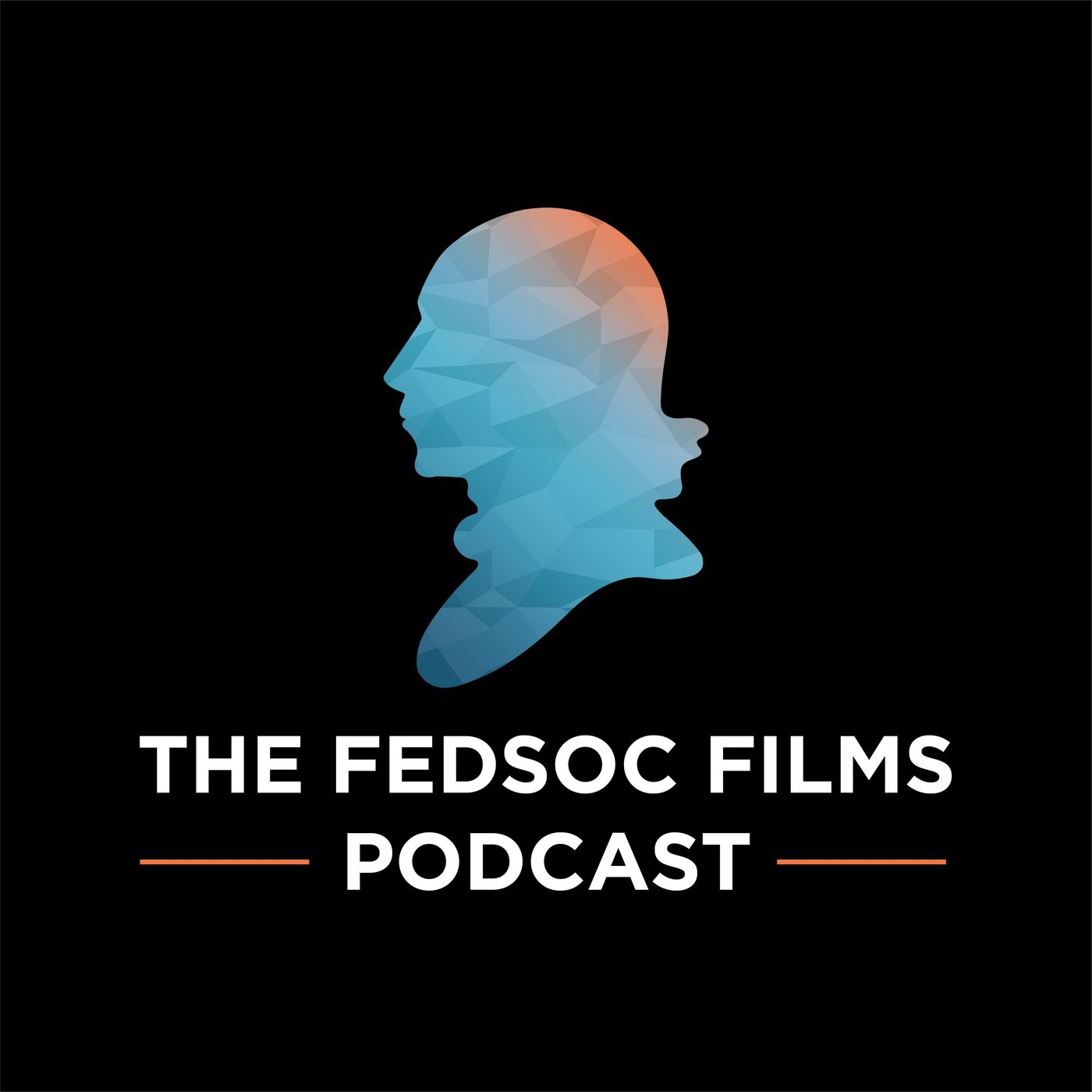 The FedSoc Films PodcastBONUS: Why Law School Students Should Read Locke & MontesquieuHow did our founding fathers encounter the ideas of John Locke and Baron de Montesquieu? Today we have two professors from the film, Paul Carrese and Michael Zuckert, who are here to answer that question and give some advice to current students and what law school students should take away from these two philosophers behind the founders.Thanks again for listening to the FedSoc Films Podcast! Be sure to rate and review us on your favorite podcast platform.Watch the full film, Locke & Montesquieu: The Philosophers Behind the Founders, on YouTube at https://youtu.be/O7...2021-05-0512 min
The FedSoc Films PodcastBONUS: Why Law School Students Should Read Locke & MontesquieuHow did our founding fathers encounter the ideas of John Locke and Baron de Montesquieu? Today we have two professors from the film, Paul Carrese and Michael Zuckert, who are here to answer that question and give some advice to current students and what law school students should take away from these two philosophers behind the founders.Thanks again for listening to the FedSoc Films Podcast! Be sure to rate and review us on your favorite podcast platform.Watch the full film, Locke & Montesquieu: The Philosophers Behind the Founders, on YouTube at https://youtu.be/O7...2021-05-0512 min The FedSoc Films PodcastBONUS: What Did John Locke Say About Religious Toleration? [The Philosophers Behind the Founders]What did one Enlightenment philosopher have to say about religious toleration and how did that impact America’s founding ideas? In this episode of the FedSoc Films Podcast, Prof. Paul Carrese and Prof. Michael Zuckert discuss John Locke’s Letter Concerning Toleration and what one 17th century political philosopher had to say on the separation of Church and state.Thanks again for listening to the FedSoc Films Podcast! Be sure to rate and review us on your favorite podcast platform.Watch the full film, Locke & Montesquieu: The Philosophers Behind the Founders, on YouTube at https://youtu.be/O...2021-04-2121 min
The FedSoc Films PodcastBONUS: What Did John Locke Say About Religious Toleration? [The Philosophers Behind the Founders]What did one Enlightenment philosopher have to say about religious toleration and how did that impact America’s founding ideas? In this episode of the FedSoc Films Podcast, Prof. Paul Carrese and Prof. Michael Zuckert discuss John Locke’s Letter Concerning Toleration and what one 17th century political philosopher had to say on the separation of Church and state.Thanks again for listening to the FedSoc Films Podcast! Be sure to rate and review us on your favorite podcast platform.Watch the full film, Locke & Montesquieu: The Philosophers Behind the Founders, on YouTube at https://youtu.be/O...2021-04-2121 min The FedSoc Films PodcastThe Laws, the Leviathan, & the Prince | The Philosophers Behind the FoundersWho are some of the other philosophers behind the founders that didn’t make it into our film or our founding documents? In this episode of the FedSoc Films Podcast, Prof. Paul Carrese and Prof. Michael Zuckert discuss the various thinkers on the mind of our founding fathers in the making of America, including Sir William Blackstone, Thomas Hobbes, and Niccolo Machiavelli.Thanks again for listening to the FedSoc Films Podcast! Be sure to rate and review us on your favorite podcast platform.Watch the full film Locke & Montesquieu: The Philosophers Behind the Founders on YouTube:2021-03-1030 min
The FedSoc Films PodcastThe Laws, the Leviathan, & the Prince | The Philosophers Behind the FoundersWho are some of the other philosophers behind the founders that didn’t make it into our film or our founding documents? In this episode of the FedSoc Films Podcast, Prof. Paul Carrese and Prof. Michael Zuckert discuss the various thinkers on the mind of our founding fathers in the making of America, including Sir William Blackstone, Thomas Hobbes, and Niccolo Machiavelli.Thanks again for listening to the FedSoc Films Podcast! Be sure to rate and review us on your favorite podcast platform.Watch the full film Locke & Montesquieu: The Philosophers Behind the Founders on YouTube:2021-03-1030 min The FedSoc Films PodcastMontesquieu’s Constitution | The Philosophers Behind the FoundersWho was Baron de Montesquieu and which of his ideas made it into America’s founding documents? In this episode of the FedSoc Films Podcast, Prof. Paul Carrese and Prof. Michael Zuckert answer that question and more to fix any Monte-skewed perspectives we might have on the origins of the United States Constitution.Thanks again for listening to the FedSoc Films Podcast! Be sure to rate and review us on your favorite podcast platform.Watch the full film, The Philosophers Behind the Founders, on YouTube at https://youtu.be/O7GvWSSMkisLearn more about Pa...2021-02-2443 min
The FedSoc Films PodcastMontesquieu’s Constitution | The Philosophers Behind the FoundersWho was Baron de Montesquieu and which of his ideas made it into America’s founding documents? In this episode of the FedSoc Films Podcast, Prof. Paul Carrese and Prof. Michael Zuckert answer that question and more to fix any Monte-skewed perspectives we might have on the origins of the United States Constitution.Thanks again for listening to the FedSoc Films Podcast! Be sure to rate and review us on your favorite podcast platform.Watch the full film, The Philosophers Behind the Founders, on YouTube at https://youtu.be/O7GvWSSMkisLearn more about Pa...2021-02-2443 min The FedSoc Films PodcastJohn Locke & the Right to Revolution | The Philosophers Behind the FoundersWhat radical idea from John Locke inspired educated colonists to revolt against their king? In this episode of the FedSoc Films Podcast, Prof. Paul Carrese and Prof. Michael Zuckert discuss John Locke, the ideas he proposed in Two Treatises of Government, how John Locke influenced America’s founding fathers.Thanks again for listening to the FedSoc Films Podcast! Be sure to rate and review us on your favorite podcast platform.Watch the full film, The Philosophers Behind the Founders, on YouTube at https://youtu.be/O7GvWSSMkisLearn more about Paul Carrese at https://is...2021-02-1041 min
The FedSoc Films PodcastJohn Locke & the Right to Revolution | The Philosophers Behind the FoundersWhat radical idea from John Locke inspired educated colonists to revolt against their king? In this episode of the FedSoc Films Podcast, Prof. Paul Carrese and Prof. Michael Zuckert discuss John Locke, the ideas he proposed in Two Treatises of Government, how John Locke influenced America’s founding fathers.Thanks again for listening to the FedSoc Films Podcast! Be sure to rate and review us on your favorite podcast platform.Watch the full film, The Philosophers Behind the Founders, on YouTube at https://youtu.be/O7GvWSSMkisLearn more about Paul Carrese at https://is...2021-02-1041 min The FedSoc Films PodcastAmerica’s Tag Team Philosophers | The Philosophers Behind the FoundersWho were the two most important philosophers behind the founders? In the episode of our series inspired by our film, The Philosophers Behind the Founders, Professor Paul Carrese and Professor Michael Zuckert join us to discuss John Locke and Baron de Montesquieu: The Tag Team Philosophers behind the American foundingThanks again for listening to the FedSoc Films Podcast! Be sure to rate and review us on your favorite podcast platform.Watch the full film, The Philosophers Behind the Founders, on YouTube at https://youtu.be/O7GvWSSMkisLearn more about Paul Carrese at...2021-01-2732 min
The FedSoc Films PodcastAmerica’s Tag Team Philosophers | The Philosophers Behind the FoundersWho were the two most important philosophers behind the founders? In the episode of our series inspired by our film, The Philosophers Behind the Founders, Professor Paul Carrese and Professor Michael Zuckert join us to discuss John Locke and Baron de Montesquieu: The Tag Team Philosophers behind the American foundingThanks again for listening to the FedSoc Films Podcast! Be sure to rate and review us on your favorite podcast platform.Watch the full film, The Philosophers Behind the Founders, on YouTube at https://youtu.be/O7GvWSSMkisLearn more about Paul Carrese at...2021-01-2732 min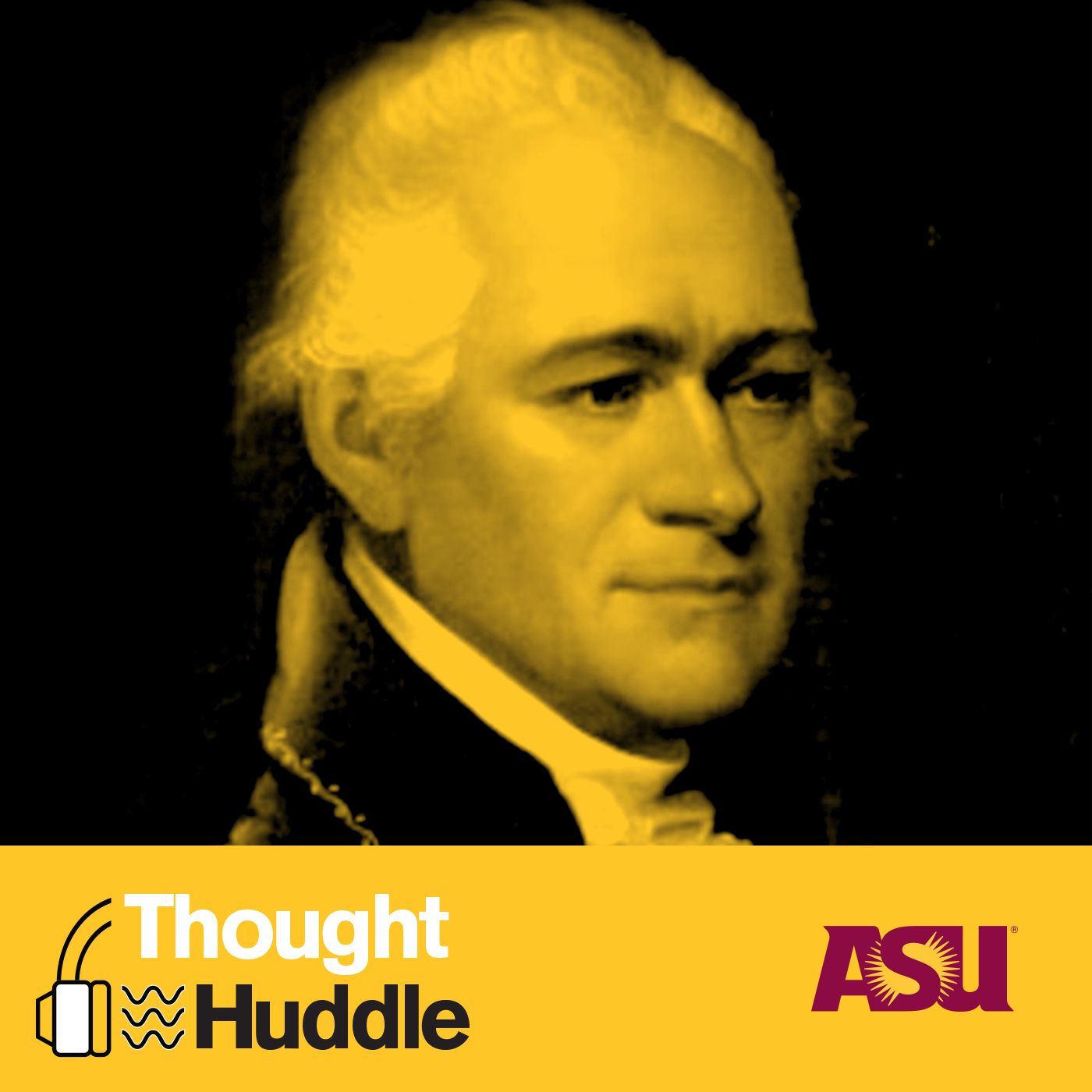 Thought Huddle podcastAlexander Hamilton: A Maker of AmericaThis is the story of Alexander Hamilton: the man, the nation builder, the dueler and the now-legendary musical. It draws on insights from professors Paul Carrese and Peter McNamara from ASU's School of Civic and Economic Thought and Leadership, Yale University's Joanne Freeman, ASU Gammage's Colleen Jennings-Roggensack and Kirk Ellis, writer of the HBO miniseries "John Adams."2018-01-2941 min
Thought Huddle podcastAlexander Hamilton: A Maker of AmericaThis is the story of Alexander Hamilton: the man, the nation builder, the dueler and the now-legendary musical. It draws on insights from professors Paul Carrese and Peter McNamara from ASU's School of Civic and Economic Thought and Leadership, Yale University's Joanne Freeman, ASU Gammage's Colleen Jennings-Roggensack and Kirk Ellis, writer of the HBO miniseries "John Adams."2018-01-2941 min Thought Huddle podcastAlexander Hamilton: A Maker of AmericaThis is the story of Alexander Hamilton: the man, the nation builder, the dueler and the now-legendary musical. It draws on insights from professors Paul Carrese and Peter McNamara from ASU's School of Civic and Economic Thought and Leadership, Yale University's Joanne Freeman, ASU Gammage's Colleen Jennings-Roggensack and Kirk Ellis, writer of the HBO miniseries "John Adams."2018-01-2900 min
Thought Huddle podcastAlexander Hamilton: A Maker of AmericaThis is the story of Alexander Hamilton: the man, the nation builder, the dueler and the now-legendary musical. It draws on insights from professors Paul Carrese and Peter McNamara from ASU's School of Civic and Economic Thought and Leadership, Yale University's Joanne Freeman, ASU Gammage's Colleen Jennings-Roggensack and Kirk Ellis, writer of the HBO miniseries "John Adams."2018-01-2900 min